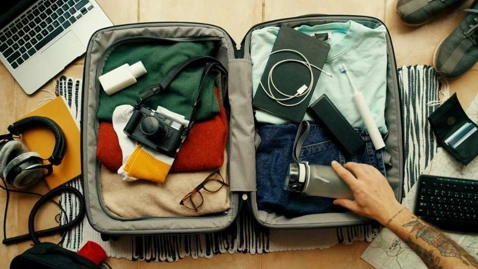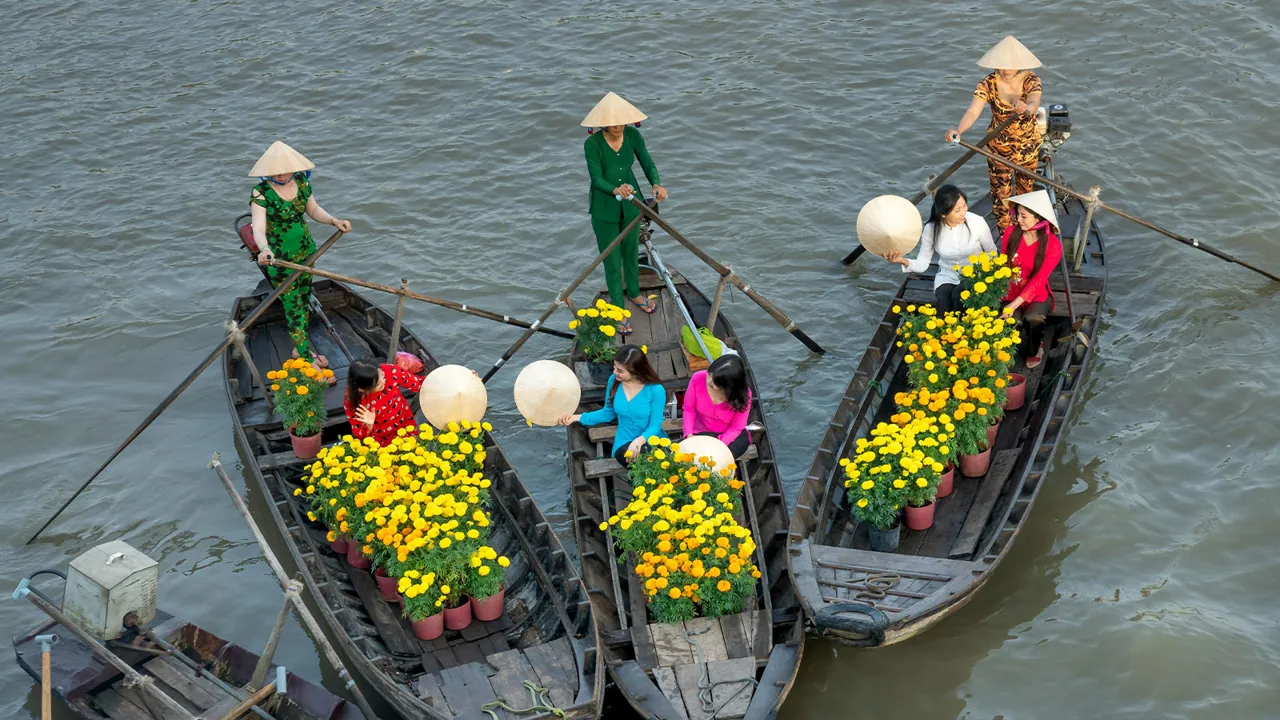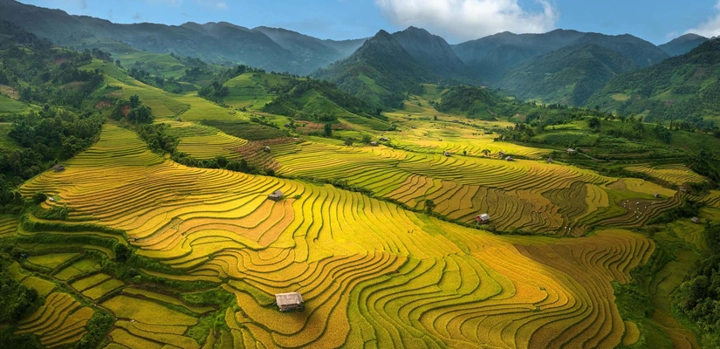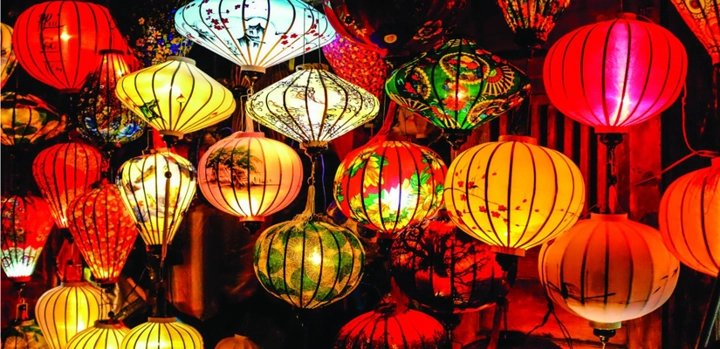Vietnam Dong—A Traveller’s Guide to Vietnam Currency
Planning a trip to Vietnam? Then understanding the local money is a must. Vietnam doesn’t use dollars or euros in daily life; the official currency is the Vietnamese Dong. And if you’re not familiar with it, things like high numbers, lookalike notes, and cash-based transactions can be confusing at first. That’s why we’ve written Vietnam Dong—A Traveller’s Guide to Vietnam Currency to help you make sense of it all. In this guide, we’ll explain how the Dong works, where to exchange money, how to spend wisely, and what to watch out for. If you want to enjoy Vietnam without money hassles, keep reading.
What is the currency of Vietnam?
Vietnam uses the Vietnamese đồng, which is written as VND. The symbol you might see in local stores is ₫. It’s a bit different from dollars or euros, and the large numbers on the banknotes can surprise you at first. Don’t worry, it just takes a little getting used to.
The word “đồng” means “copper” in Vietnamese. This name comes from the old days when people used copper coins. Before the đồng, Vietnam used several different currencies depending on the region and the time period. For example, during the French colonial time, they used the piastre. After the country was split into North and South, each side had its own version of the đồng. In 1978, after reunification, the government introduced a new national đồng, which is the one used today.
Today, the Vietnamese đồng is one of the lowest-valued currencies in the world, especially compared to the US dollar or the euro. As of 2025, 1 USD is worth about 25,000 VND. This means you will often deal with large numbers, like 100,000 VND or even 500,000 VND. But don’t worry, it’s not as much as it sounds. For example, a bowl of pho might cost around 40,000 VND, which is less than two dollars.
Vietnamese currency has no coins in circulation anymore. We used to have coins, but people stopped using them. Now you’ll only see paper and polymer banknotes. These are the denominations currently used:
The smallest notes, like 1,000 or 2,000 VND are not used very often in big cities anymore. People in rural areas might still use them, especially in local markets. Most of the time, you will use the higher-value bills like 50,000 VND and up.
The notes come in bright colors and feature Ho Chi Minh, the former president of Vietnam, on the front. The back of each bill shows important landmarks or cultural symbols, like the One Pillar Pagoda or Ha Long Bay. It’s actually a nice way to learn about Vietnam while handling money.

Vietnam Dong exchange rates
When you travel to Vietnam, it helps to understand how the Vietnamese đồng (VND) compares to your home currency. The numbers can be a bit shocking at first, because you’ll see prices in the thousands or hundreds of thousands. But don’t worry. Once you know the exchange rate, things get easier.
As of 2025, here are the average exchange rates for 1 Vietnamese đồng (VND). These rates change daily, so always check a reliable source like a local bank or currency app before making any exchanges.
America
-
Vietnam Dong to USD: 1 VND ≈ 0.000040 US Dollars
(Or 1 USD ≈ 25,000 VND)
-
Vietnam Dong to MXN: 1 VND ≈ 0.00073 Mexican Pesos
(Or 1 MXN ≈ 1,370 VND)
-
Vietnam Dong to CAD: 1 VND ≈ 0.000055 Canadian Dollars
(Or 1 CAD ≈ 18,000 VND)
Europe
-
Vietnam Dong to Euro: 1 VND ≈ 0.000037 Euro (EUR)
(Or 1 EUR ≈ 27,000 VND) -
Vietnam Dong to GBP: 1 VND ≈ 0.000032 British Pounds (GBP)
(Or 1 GBP ≈ 31,000 VND)
Australia
-
Vietnam Dong to AUD: 1 VND ≈ 0.000060 Australian Dollars (AUD)
(Or 1 AUD ≈ 16,600 VND) -
Vietnam Dong to NZD: 1 VND ≈ 0.000066 New Zealand Dollars (NZD)
(Or 1 NZD ≈ 15,000 VND)
Asia
-
Vietnam Dong to JPY: 1 VND ≈ 0.0066 Japanese Yen (JPY)
(Or 1 JPY ≈ 150 VND) -
Vietnam Dong to KRW: 1 VND ≈ 0.0053 South Korean Won (KRW)
(Or 1 KRW ≈ 190 VND) -
Vietnam Dong to CNY: 1 VND ≈ 0.00028 Chinese Yuan (CNY)
(Or 1 CNY ≈ 3,500 VND) -
Vietnam Dong to SGD: 1 VND ≈ 0.000057 Singapore Dollar (SGD)
(Or 1 SGD ≈ 17,500 VND) -
Vietnam Dong to THB: 1 VND ≈ 0.0014 Thai Baht (THB)
(Or 1 THB ≈ 710 VND) -
Vietnam Dong to PKR: 1 VND ≈ 0.0067 Pakistani Rupee (PKR)
(Or 1 PKR ≈ 150 VND) -
Vietnam Dong to INR: 1 VND ≈ 0.0035 Indian Rupee (INR)
(Or 1 INR ≈ 280 VND) -
Vietnam Dong to PHP: 1 VND ≈ 0.0023 Philippine Pesos (PHP)
(Or 1 PHP ≈ 430 VND) -
Vietnam Dong to LKR: 1 VND ≈ 0.0055 Sri Lankan Rupee (LKR)
(Or 1 LKR ≈ 180 VND) -
Vietnam Dong to BDT: 1 VND ≈ 0.0050 Bangladeshi Taka (BDT)
(Or 1 BDT ≈ 200 VND) -
Vietnam Dong to MYR: 1 VND ≈ 0.00013 Malaysian Ringgit (MYR)
(Or 1 MYR ≈ 7,700 VND)
Africa
-
Vietnam Dong to NGN: 1 VND ≈ 0.035 Nigerian Naira (NGN)
(Or 1 NGN ≈ 29 VND) -
Vietnam Dong to ZAR: 1 VND ≈ 0.00076 South African Rand (ZAR)
(Or 1 ZAR ≈ 1,300 VND)
Note: These exchange rates are only estimates, and they can change due to global currency shifts. When you arrive in Vietnam, we recommend using an app like XE, Wise, or Google’s currency converter to check the latest rates.
Where to exchange money in Vietnam
When you arrive in Vietnam, one of the first things you’ll need to do is get some local currency. Even though cards are becoming more common, cash is still the main way to pay for food, transport, and shopping, especially in local markets and smaller towns. Here are the places to exchange your money and what you should know before doing it.
Airports
You can exchange money at the airport, but we don’t recommend doing it unless you need a little cash for a taxi or a SIM card. The exchange rate at airports is usually worse than in the city. You might also pay extra fees. If you must, change only a small amount, just enough to get started.
Banks
Vietnamese banks offer safe and reliable currency exchange. Some of the biggest ones are
-
Vietcombank
-
BIDV
-
Agribank
-
Techcombank
The rates are usually better than at the airport but not as good as gold shops. Banks will ask for your passport, and the process might take 10–20 minutes. Some branches don’t handle currency exchange at all, especially in rural areas. We suggest you go during weekdays before 4 PM. Banks close early and don’t open on weekends.

Gold and Jewelry Shops
Gold shops often offer the best exchange rates, especially in cities like Hanoi, Ho Chi Minh City, or Da Nang. They usually don’t charge a fee, and the process is quick. You hand over your foreign currency, and they give you đồng. That’s it.
But be careful. Not all gold shops are licensed, and some may not give you a receipt. This can be a problem if you plan to exchange back leftover VND later. To stay safe, ask your hotel or a local for a trusted shop. In Hanoi, Ha Trung is a street known for money exchange. In Ho Chi Minh city, you can visit shops near Ben Thanh Market.
Hotels
Some large hotels offer currency exchange at the front desk. This is convenient, especially if you’re in a rush, but the rates can be as high as the bank’s, and they may charge a service fee. Also, smaller hotels might not have enough cash on hand for larger exchanges. Use hotel exchange if you can’t find a bank or gold shop nearby.
ATMs
If you have a debit or credit card, you can withdraw Vietnamese đồng from ATMs. This is often the easiest option, and the rate is usually close to the real exchange rate. But most ATMs charge a fee of 30,000 to 50,000 VND per transaction (about $1.20 to $2), and your own bank might also charge a fee on top of that.
We suggest you withdraw larger amounts less often to avoid multiple charges. Look for machines from reliable banks like Vietcombank, BIDV, or ACB. Avoid random ATM brands you don’t recognize.
Some ATMs have a withdrawal limit of 2,000,000 to 3,000,000 VND (around $80–120), but others let you take out more. Try different machines if needed.

Tips for spending and exchanging money in Vietnam
Carry Small Bills
Many small shops, street vendors, taxis, and even some cafes won’t have change for big notes like 500,000 VND. Try to break big notes at supermarkets, convenience stores, or restaurants.
We recommend carrying:
-
Several 10,000–50,000 VND notes for street food or short taxi rides.
-
At least one 100,000 or 200,000 VND note in case of emergencies.
Bargaining Tips
In Vietnam, bargaining is common, especially in markets or when buying souvenirs. But not everywhere.
When to bargain:
-
Do bargain: street markets, souvenir shops, and some taxis (if they don’t use a meter).
-
Don’t bargain: restaurants, convenience stores, supermarkets, and fixed-price shops.
How to do it:
-
Always smile and stay polite.
-
Try offering 30–40% less than the first price, then go from there.
-
If you feel pressured or uncomfortable, just walk away. Often, the seller will call you back with a better price.

Tipping in Vietnam
Tipping is not expected, but it’s always appreciated, especially in the tourism and service industries.
Here are some general guidelines:
-
Restaurants: No tip is required, but you can leave 5–10% if the service is good. Upscale places may add a service charge.
-
Tour guides and drivers: Tips are expected here. We usually tip 50,000–100,000 VND per day for a driver and 100,000–200,000 VND per day for a guide.
Use Local Currency
Some tourist shops, hotels, or travel agencies may accept US dollars, but it’s much better to pay in Vietnamese đồng. You’ll get better prices, and you’ll avoid confusion.
Even if you see prices listed in USD online, always check the VND rate before paying. Many places use their own exchange rate, which can be unfair.
Watch Out for Lookalike Notes
Vietnamese banknotes come in many colors, and some look very similar. The 20,000 VND and 500,000 VND notes are both blue, and the 10,000 VND and 200,000 VND notes are both yellow.
Tip: Take a second to double-check your change. It’s easy to confuse a 500,000 VND note with a much smaller one, especially when you're in a hurry or paying in low light.
Don’t Rely Only on Cards
Credit and debit cards work in most hotels, upscale restaurants, shopping malls, and some chain coffee shops. But many local places still accept cash only. Visa and Mastercard are widely accepted. American Express is less common.
Tip: Always carry some cash, especially outside of big cities like Hanoi and Ho Chi Minh City.
Use Money Apps
Download a currency converter app like
-
XE
-
Wise
-
Google Currency
These help you check live exchange rates. They’re helpful for bargaining too; you can show the seller your phone to explain your price.
Keep Your Money Safe
Vietnam is generally safe, but petty theft does happen, especially in crowded markets or tourist areas. Tips:
-
Use a money belt or neck pouch.
-
Don’t keep all your cash in one place.
-
Avoid showing large amounts of cash in public.
Conclusion
We hope Vietnam Dong—A Traveller’s Guide to Vietnam Currency has given you the confidence to handle money like a local. With cash in hand and some local knowledge, you’ll be ready to explore everything Vietnam has to offer.
>>> Top 15 Best Places To Go Kayaking In Vietnam: Scenic Routes You Shouldn’t Miss
>>> Top 15 Most Beautiful Islands in Vietnam—A Complete Guide for Nature & Adventure Lovers
Send us your comments about : Vietnam Dong—A Traveller’s Guide to Vietnam Currency
Required fields *
You might also be interested
Our clients’ favorite journeys to customize
Looking for inspiration? Discover some of our most popular tours in Vietnam, highly appreciated by our travelers. They are a great starting point to help you choose the perfect journey through Vietnam, Laos, Cambodia, Myanmar, or Thailand—whether you’re traveling solo, as a couple, with family, or with friends.
And since this is your trip, feel free to customize it just the way you like!
Vietnam Cambodia Itinerary 14 Days
Hanoi – Hoa Binh – Mai Chau – Ninh Binh – Halong bay – Hue - Danang – Hoian – Saigon – Ben Tre - Can Tho – Saigon - Siem Reap Angkor - Tonlé Sap - Siem Reap – Ta Prohm - Departure
Vietnam and Laos 14 days
Saigon - My Tho - Da Nang- Hoian – Hue - Hanoi - Halong Bay - Vientiane Luang Prabang - Pak Ou – Khuang Si - Luang Prabang – Departure
Honeymoon Tour Packages In Vietnam 12 Days
Saigon Arrival - City Tour – Mekong Delta – Danang – Hoian - by flight - Da Nang – Hanoi - by flight – Halong - overnight on junk – Departure
Authentic Hoang Su Phi Trekking Tours
Hoang Su Phi trekking tours take you to stunning terraces, meet few tourists, connect with locals and enjoy authentic culture.
The Best of Ha Giang Trekking Tours
Discover Ha Giang on trekking tours where you live local life, enjoy breathtaking views and escape the crowded routes.
Vietnam Itinerary 2 Weeks
Hanoi - Ninh Binh - Lao Cai - Sapa - Muong Hum market - Ha Long Bay - Hue - Danang - Hoi An - Saigon - Mekong Delta - Cai Rang floating market - Departure
Are you interested in this tour?







































Comment